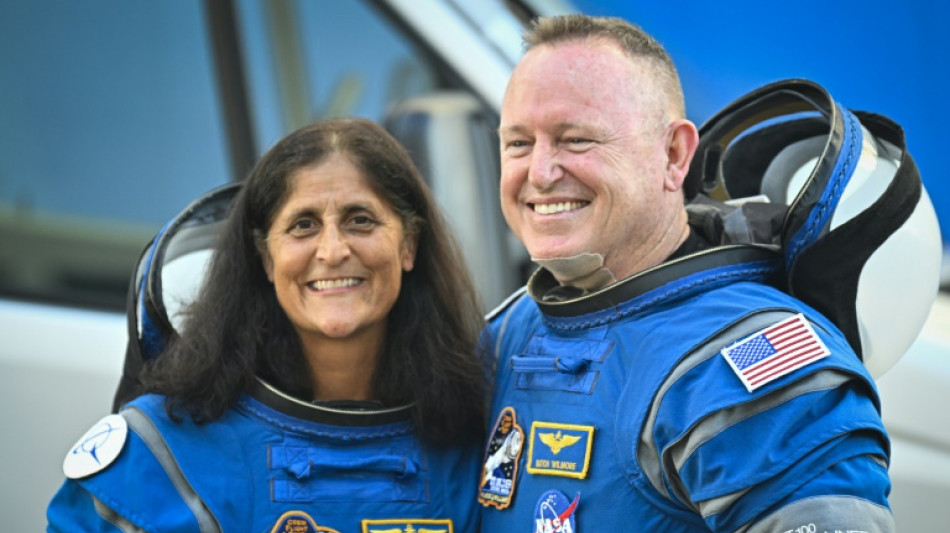
SCS
0.0200

NASA is expected to decide Saturday whether two astronauts who arrived at the International Space Station aboard Boeing's Starliner should return on that craft -- or brace for a longer wait to fly home with rival SpaceX.
The latter solution would not only create a fresh public relations headache for Boeing, but possibly result in astronauts Butch Wilmore and Suni Williams spending a total of eight months in orbit, not the eight days as originally planned.
A decision-making committee, with NASA chief Bill Nelson sitting in, will meet Saturday to weigh the tough issue.
The US space agency has tentatively scheduled a news conference for 1:00 pm (1700 GMT), presumably to announce its verdict.
After years of Starliner development delays, the spacecraft finally lifted off in early June carrying Wilmore and Williams, both veteran astronauts, to the ISS.
The capsule was originally set to bring them to Earth after eight days in space, but NASA put their return on indefinite hold as it studied problems with the craft's propulsion system.
NASA officials are weighing the highly unusual option of bringing the two astronauts back from the flying laboratory not on their own craft, but aboard a previously scheduled SpaceX vehicle in February.
Engineers at Boeing and NASA have spent weeks conducting intensive tests on the Starliner's systems, trying to get to the root of the problem.
Their worry is that the craft might not have the propulsive power to wrest itself out of orbit and begin the descent toward Earth.
If NASA experts decide the Starliner is not safe, the craft would return without any passengers.
The SpaceX Crew-9 mission would then take off in late September, but carrying only two passengers instead of the originally planned four.
It would remain moored to the ISS until its scheduled return in February, bringing back its own crew members plus their two stranded colleagues.
Such an approach would be a stinging blow to the already tarnished image of US giant Boeing, whose airplane arm has been beset in recent years with concerns about safety and quality control.
Ten years ago, following the retirement of the Space Shuttle, NASA ordered new vessels from both Boeing and SpaceX that could ferry astronauts to and from the ISS.
With two such vehicles available, NASA reasoned, there would always be a backup in case one of the two experienced problems.
But Elon Musk's SpaceX beat Boeing to the punch and has been the lone vehicle used to taxi astronauts for the past four years.
This year's crewed Starliner flight, which followed years of delays and disappointments during the craft's development, was meant to be a last test of the vehicle before it enters regular operations.
NASA has said the astronauts on the ISS have plenty of supplies, are trained for extended stays and have plenty of experiments to conduct.
O.Holub--TPP